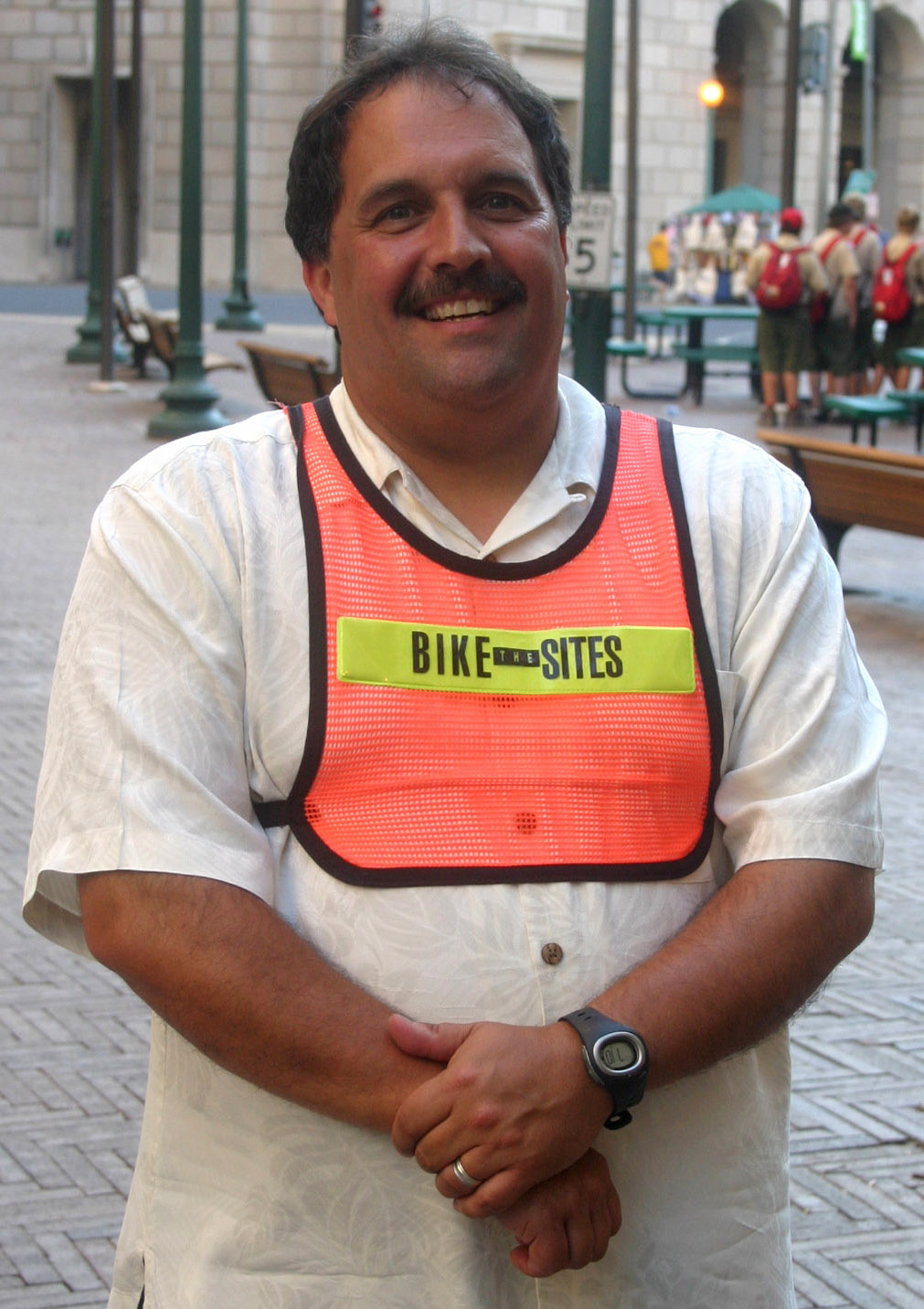The nation is in a massive recession, jobs are vanishing like hotcakes, we're crippled by unprecedented household debt, a deflationary environment is setting in, individual net worth is plummeting faster than any time since the Depression, structural deficits are looking at long-term unsustainability, the financial sector is broken. And those are only the most obvious things that immediately leap to mind.
So with all that on your plate -- plus an ominously rising China demanding an end to the dollar as the global reserve currency of choice and long-term economic competitiveness issues that continue to go unaddressed -- what does CNN want to focus the American people's attention on? Why, the fact that a few bankers took home a bonus, of course! That's right, CNN has a weird, 7th-grade-crush-style obsession with the fact that a number of AIG employees were given bonuses after the firm was bailed out (numerous times) by the US government.
We can all agree that AIG's decision to pay out bonuses at a most inopportune moment is pretty boneheaded, but let's take a look for a moment at how pointless this issue is. It is neither the cause of the recession and financial mess, nor is fixating on it the solution to getting us past our woes. Moreover, the $162 million dollars paid out in bonuses at a company of tens of thousands of people was less than 0.1% of the total aid that AIG received. And since money is fungible, it's impossible to say that those bonuses "came from" government aid any more than they "came from" AIG revenues collected from families with policies in Iowa -- or Japan, for that matter. What it is, however, is a populist rage-inducing story that gives the public an easy villain and a comprehensible plot. Never mind that it's irrelevant, distracting and counter-productive.

 I've been increasingly repulsed in recent months by CNN's dumb-it-down tabloid journalism, the most recent exacerbation of which is undoubtedly the thoughtless Campbell Brown. But the channel's most recent decision to take a turn as the crusading populist mouthpiece of choice is truly disturbing. I luckily wasn't near a TV most of last week when the "AIG bonus story" broke, thank God. But the two hours of CNN coverage I saw tonight, a week and a half after the fact, was appalling.
I've been increasingly repulsed in recent months by CNN's dumb-it-down tabloid journalism, the most recent exacerbation of which is undoubtedly the thoughtless Campbell Brown. But the channel's most recent decision to take a turn as the crusading populist mouthpiece of choice is truly disturbing. I luckily wasn't near a TV most of last week when the "AIG bonus story" broke, thank God. But the two hours of CNN coverage I saw tonight, a week and a half after the fact, was appalling.For anyone who has the sense not to watch CNN, I should add that at tonight's presidential press conference that channel's correspondent asked an inane question about why Obama hasn't macheted all AIG employees because some workers there were given bonuses. You can see the question asked here. No less than CNN's own Bill Bennett, one of the most destructive and shameless political figures in late-20th-century America, harped on the non-issue in the chatter that followed the press conference, leaving idiots-in-chief Campbell Brown and Ed Henry to blather on (and on and on) about those nefarious bonuses. Fast-forward 6:20 in for a glimpse of the idiocy:
The evening's edition of "Anderson Cooper 360" continued to beat its breast over this non-issue, marveling at what a doozy that Ed Henry laid for the finance-loving (and therefore untrustworthy) President Obama. And CNN's web site -- itself as well-designed as an AOL forum circa 1997 -- made sure to give top billing to the fact that Obama gave its correspondent a "tough answer" in a typically half-witted, solipsistic article. (Like almost all CNN web articles, it generally serves to do little beyond publicize some "event" that occurred on a CNN television program.)
 But here's what really bothers me. No successful capitalist society can exist without a robust financial system able to give businesses the capital they need to grow. What we need to do is revive the financial sector, not make its individual members say "Uncle" and flee to Abu Dhubaibi, or whatever half-witted Emirate is offering free housing and lap dances to any Westerners willing to defect these days. The Obama administration is fortunately toning down its rhetoric, paving a path to hopefully returning to normalcy, despite earlier missteps.
But here's what really bothers me. No successful capitalist society can exist without a robust financial system able to give businesses the capital they need to grow. What we need to do is revive the financial sector, not make its individual members say "Uncle" and flee to Abu Dhubaibi, or whatever half-witted Emirate is offering free housing and lap dances to any Westerners willing to defect these days. The Obama administration is fortunately toning down its rhetoric, paving a path to hopefully returning to normalcy, despite earlier missteps.But restoring the health of the financial sector becomes a lot harder when the country's largest cable news network is engaged in a full-fledged witch hunt against bankers. Indeed, CNN's stab at
 nascent Bolshevism is reminiscent of 1930s Europe and is beginning to make me frightened. The incessant tirades against "greedy bankers" and "pigs" -- how much farther do we have to go before we begin to hear talk of "Zionist conspiracies"? Europe has dabbled in hatred of financiers throughout its history. There's no need for the US, prodded by CNN, to go down that path traveled, appropriately enough, by fascist and Bolshevik alike.
nascent Bolshevism is reminiscent of 1930s Europe and is beginning to make me frightened. The incessant tirades against "greedy bankers" and "pigs" -- how much farther do we have to go before we begin to hear talk of "Zionist conspiracies"? Europe has dabbled in hatred of financiers throughout its history. There's no need for the US, prodded by CNN, to go down that path traveled, appropriately enough, by fascist and Bolshevik alike.Luckily, most actual humans don't seem to be very interested in the media's latest false god. As Joe Klein notes in Time, "Most of the anger we see and hear comes from people who are paid to be angry, on cue, on cable television--as opposed to people with actual grievacnes. ... It is said that the bonuses are an aspect of the bust that the "public" can understand; in truth, the bonuses are an aspect of the bust that reporters can understand."
A glance at the "blog" that accompanies "Anderson Cooper 360" shows a preponderance of viewers who are sick and tired of CNN's crucible of bonus-boners.
"I think Ed Henry thought he was going to get the President on a “gotcha question” but the President really got him," as one viewer said. "The media is seeming more out of touch all the time. We’re over AIG–we’ve all got bigger things to worry about. If you’re not part of the solution you’re part of the problem!" added another.
I tried to add a comment four times but was filtered out each time. The comment said, "Can we please stop fixating on the bonuses? We need a healthy financial system to get the economy back on track, yet CNN seems bent on turning Americans against bankers. This is a frightening development, and we'd all be better off if the media turns its attention toward the more serious questions of where we'll find economic growth in the future given that the country's most successful sector has imploded and taken millions of high-paying jobs with it."
That comment was apparently too critical. CNN's comments guidelines state that topics not use foul language or be off topic ... yet the vast majority of comments that did make it onto the "blog" were along the lines of: "@ John King is a pity … you are a great “blogger”! I love when you are blogging with us" or "I really don’t want to know who on Earth would want Michael Jackson’s socks. That’s icky to infinity." Good thing CNN is ready to ask the hard questions, huh?
 So CNN has developed the sensibilities of Soviet Russia in pushing its anti-bonus agenda and frittering out criticism by viewers. This is a rather sad development for the country. The problems are vast. But the opportunities are even bigger. The time is ripe to be asking the questions whose consideration will hopefully set the path toward longer-term growth. What industries will fuel growth in the future? How do we train people to work in them? How do we get those businesses financed? When will the economy turn around? Why are deficits (structural and current-account) so big? How do we reverse them? Do we need to have a manufacturing sector again? If so, how do we compete against China?
So CNN has developed the sensibilities of Soviet Russia in pushing its anti-bonus agenda and frittering out criticism by viewers. This is a rather sad development for the country. The problems are vast. But the opportunities are even bigger. The time is ripe to be asking the questions whose consideration will hopefully set the path toward longer-term growth. What industries will fuel growth in the future? How do we train people to work in them? How do we get those businesses financed? When will the economy turn around? Why are deficits (structural and current-account) so big? How do we reverse them? Do we need to have a manufacturing sector again? If so, how do we compete against China?Those questions are clearly very dull, though. Obviously people would rather focus on hating their slightly wealthier neighbors than determining where their own future prosperity will come from, right? Well, possibly not. For those of us who have half a brain and need something a bit less demagogic than CNN, I can wholeheartedly recommend the program that ran against AC360 on PBS tonight: "Ten Trillion and Counting." It's a fascinating account of the structural debt that George W. Bush left us. Watch the program online and ask yourself how we can get out of that debt. After all, somebody has to start asking these questions while Anderson Cooper warbles on about the Zionist bankers' plot to destroy "Main Street."













































